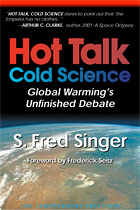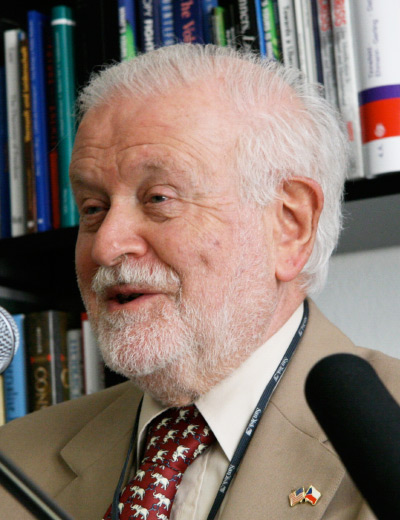Hot Talk and Cold Science of Global Warming
After Kyoto, Climategate and the “Hockey Stick”
Thursday, July 14, 2011
When
Thursday, July 14, Noon to 2:00 p.m.
Location
Independent Institute Conference Center
100 Swan Way, Oakland, CA 94621-1428
Featuring
Dr. S. Fred Singer is Research Fellow at The Independent Institute, author of Hot Talk, Cold Science: Global Warming’s Unfinished Debate, Professor Emeritus of Environmental Sciences at the University of Virginia, President of the Science and Environmental Policy Project, a Fellow of the American Association for the Advancement of Science, and a Member of the International Academy of Astronautics. He received his Ph.D. in physics from Princeton University.
Is global warming real, imminent, and a threat to human life, especially with the evidence that global temperatures have been dropping since 1998? What predictions have now been established scientifically? What is the truth regarding Climategate and other revelations regarding the claims of man-made global warming? The proposed Global Climate Treaty and California state mandates call for extensive government controls to reduce fossil fuel use. Yet, is there scientific evidence to support such measures? Would the proposed massive “carbon” taxes and other controls put our society and countries around the world—especially those most disadvantaged—at greater risk? Based on the latest research, renowned astrophysicist Fred Singer will separate fact from fiction in this raging global warming debate.

Hot Talk, Cold Science: Global Warming’s Unfinished Debate
Singer’s masterful analysis decisively shows that the pessimistic, and often alarming, global warming scenarios depicted in the media have no scientific basis. In fact, he finds that many aspects of any global warming, such as a longer growing season for food and a reduced need to use fossil fuels for heating, would actually have a positive impact on the human race. Further, Singer notes how many proposed “solutions” to the global warming “crisis” (like “carbon” taxes) would have severe consequences for economically disadvantaged groups and nations.







